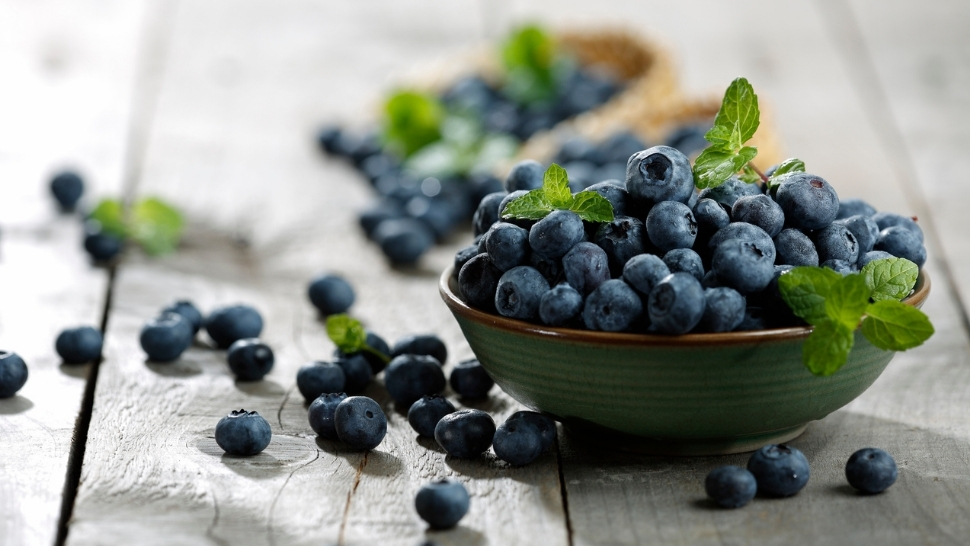
The connection between food and healthy aging has been well-established. More recently though, scientists have found a relationship between certain foods and how the brain functions even beyond early development in children. From improved memory to better motor skills and reduced risk of dementia and Alzheimer’s disease, what’s on your plate can affect your gray matter. While eating any plant foods helps reduce inflammation and promote healthy blood flow (two important factors in brain health), include these 10 foods in your diet to bump up your brainpower.
- Avocado: Filled with healthy fats and fiber, avocados promote healthy blood flow to the brain, and some of the vitamins and phytonutrients in this fruit have been linked to reduced blood clotting and risk of stroke. Eating avocados has also been linked lower blood pressure, which may lessen cognitive decline. Enjoy 1/4 to 1/2 fruit on a sandwich, salad, in a smoothie, or mashed on (whole grain) toast.
- Wild salmon and sardines: The omega-3 fatty acids in these and other fat-rich fish are essential for brain function and may reduce cognitive decline as well as lower risk or slow progression of Alzheimer’s disease. Plant sources of omega-3 fatty acids like flax, chia, and hemp seeds may provide some benefit as well.
- Blueberries: Animal studies have linked blueberry consumption to improved motor function, memory, learning skills, and attention. Blueberries and strawberries may also slow cognitive decline due to the powerful phytonutrients found in these berries. Enjoy as a snack, on top of your salad, yogurt, or oatmeal.
- Walnuts (and other nuts): Diets rich in walnuts have been tied to better mental performance and memory as well as improved cognitive function. Grab a handful as a snack or toss a few in a pasta dish or whole grain salad for an added crunch.
- Lentils and other pulses: Packed with B vitamins and folate, lentils may improve cognitive function and decrease levels of an amino acid tied to impaired brain function. They’re not just for soup – enjoy in a pasta sauce, stir-fry, or as a base for a protein-packed salad.
- Pumpkin seeds: A rich source of zinc, pumpkin seeds may boost memory and thinking skills. The B vitamins and magnesium may also reduce cognitive impairment later in life, and can possibly improve your mood! Roast your own seasonally.
- Beets: The nitrates in beets may improve blood flow to the brain, and along with inflammation fighting phytonutrients help improve brain health. Enjoy roasted beets as a hearty side or shred them for an interesting addition to a salad.
- Turmeric: Curcumin, the active compound in turmeric, may slow progression of Alzheimer’s by slowing the formation of plaque deposits associated with the disease. It’s also a powerful anti-inflammatory spice that may promote overall brain health. Its bright yellow color adds a beautiful aesthetic quality to sauces, soups, and other dishes. Feeling adventurous? Try adding it to your morning smoothie.
- Coffee: Moderate coffee consumption is linked to lower risk of Alzheimer’s or dementia. It’s thought to be due to a combination of the caffeine and antioxidants. Drink black or with a little milk – skip the sugary coffee drinks.
- Dark chocolate: Yes, a little treat can be good for your attention. Research has linked cacao consumption with improvement in visual attention, task switching, and verbal fluency. Indulge in no more than 1 ounce of dark chocolate (70% or more cacao content) per day for a delicious pick-me-up.
While adding healthful foods to your diet should be the goal, reducing foods that increase inflammation can also affect your cognitive function as you get older. This includes highly processed foods that contain refined oils (omega-6’s), saturated and trans fats, as well as added sugars. Stick to whole foods, lots of plants, and your brain will thank you.
Read More: